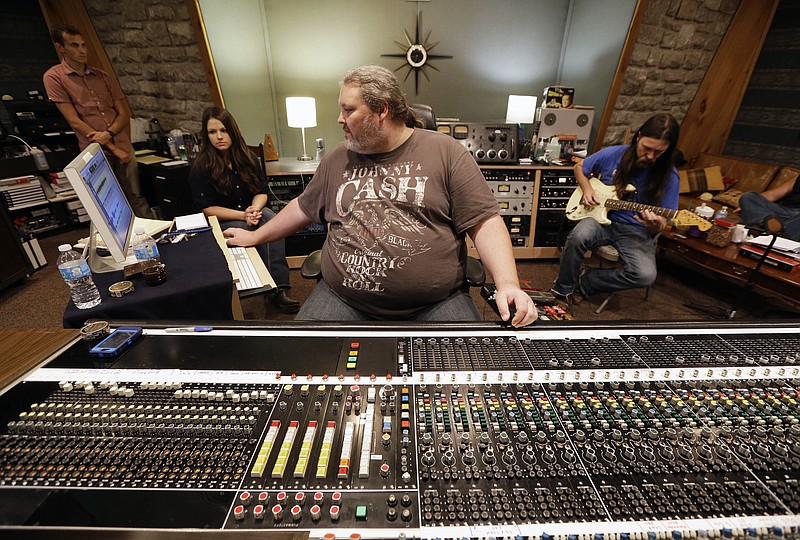NASHVILLE -- A storied recording studio on Nashville's Music Row that was once slated to be demolished to make way for a luxury condo development has been named to the National Register of Historic Places.
The designation of the RCA Victor Studios Building, better known as RCA Studio A, was announced by the National Park Service on Friday. It makes the site eligible to get federal tax credits and qualify for historic preservation grants.
The studio was developed by country music legend Chet Atkins in 1964, and the likes of Elvis Presley, Willie Nelson and Waylon Jennings have recorded music there. Singer-songwriter Ben Folds has rented the studio for 12 years and led efforts to save the space that culminated in philanthropist Aubrey Preston's last-minute purchase of the property from the developer in October.
"It seemed to me to be a little bit of a tipping point if an incredible studio like this on Music Row was just to disappear in the dead of night," Folds said earlier this year. "I felt like the identity of Nashville needed to remain."
Music Row has long been home to an eclectic mix of recording studios, record label buildings, publishing houses and music industry office space. But its location just southeast of downtown has also made it a prime target for development.
Like many other nondescript buildings on Music Row, little on the exterior suggests what's happening inside Studio A, which has a recording room large enough to hold a full orchestra. Similar rooms that were once in Chicago, Los Angeles, New York, Mexico and Rome no longer exist.
The campaign to save the studio helped spawn a larger effort to save Music Row from development. City planning officials in February issued a moratorium on new proposals to raze or significantly alter buildings that helped build up Nashville's reputation as the capital of country music.
The moratorium, which does not affect previously-approved projects, could run for a year and a half while officials work on a comprehensive plan to balance growth with the history of Music Row.
